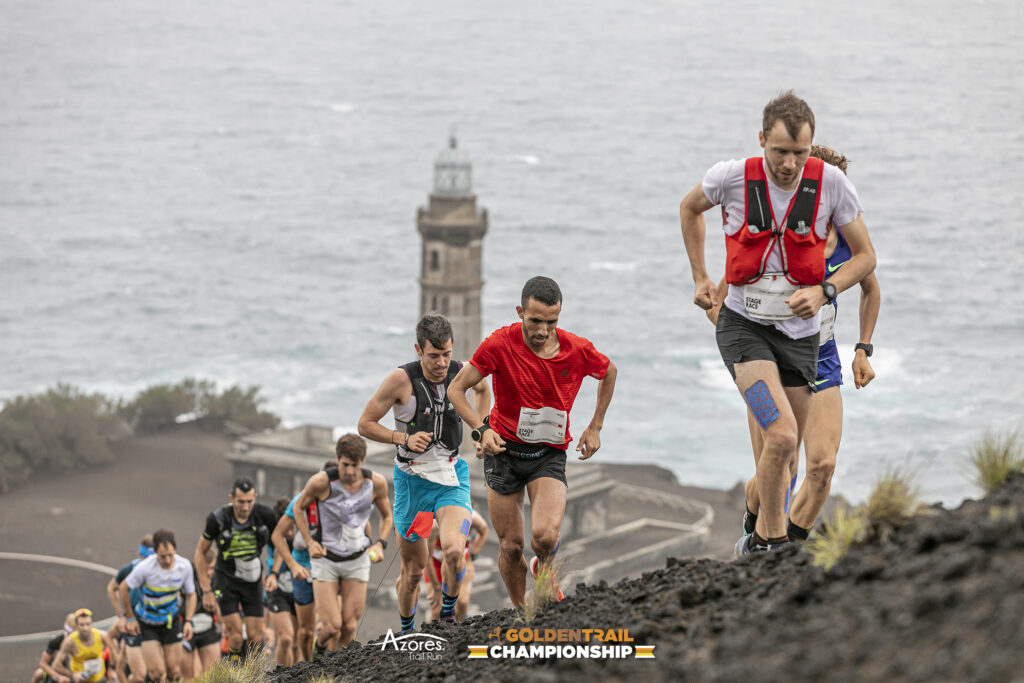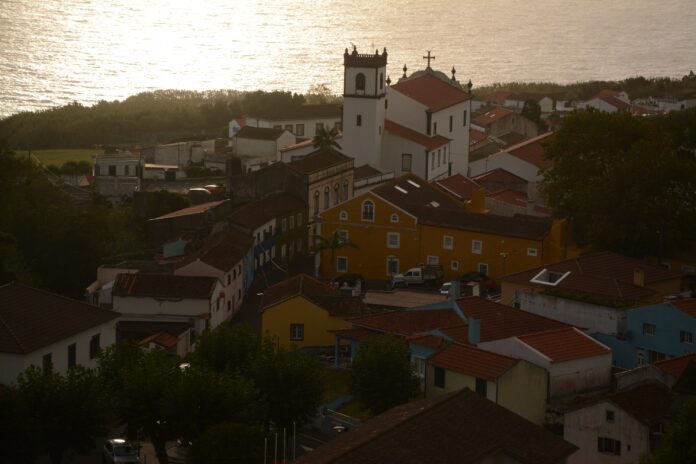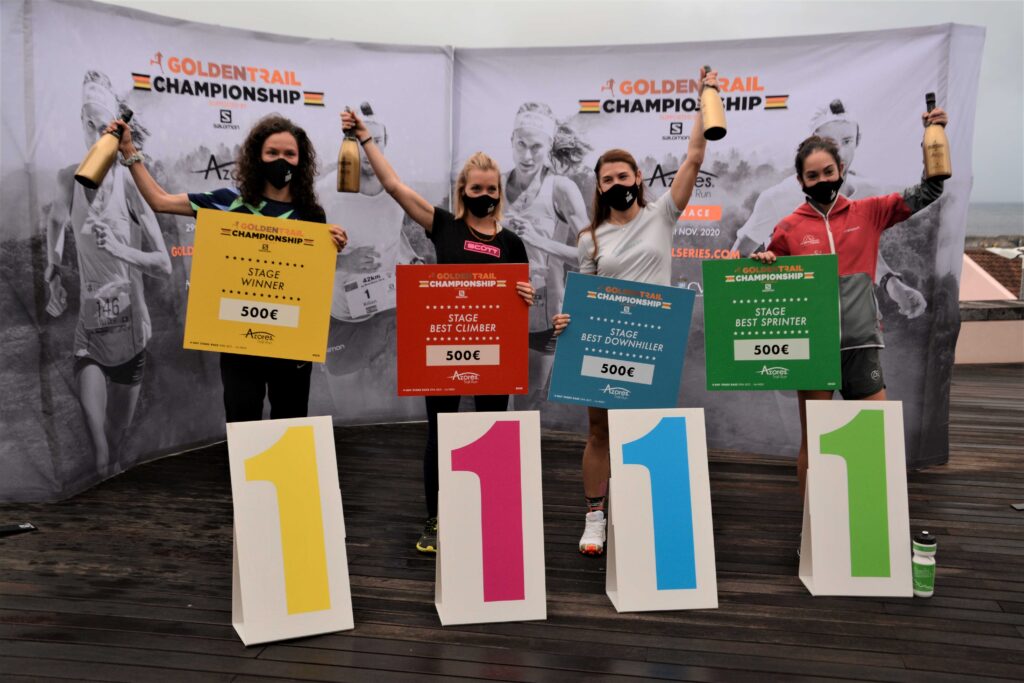
Had last week’s Golden Trail Championship (GTC) been a four-day cricket test, the match would have been abandoned without a ball being bowled. Trail athletes, however, embrace wild and elemental and the four-day stage race on the Azores Island of Faial over successive days of cold, wet and windy weather, proved a resounding success.
The volcanic island of Faial contains some of nature’s wildest ecosystems for trail runners, from ‘abrasive black lava rock, to humid thick tropical forest, high exposed volcano peaks and an endless supply of glorious thick mud’. The sunny weather, which had prevailed during the short prologue the day before the championship proper, returned but only once the 116 km ‘dash’ through thick mud and thicker mist had been run and the champagne corks popped.
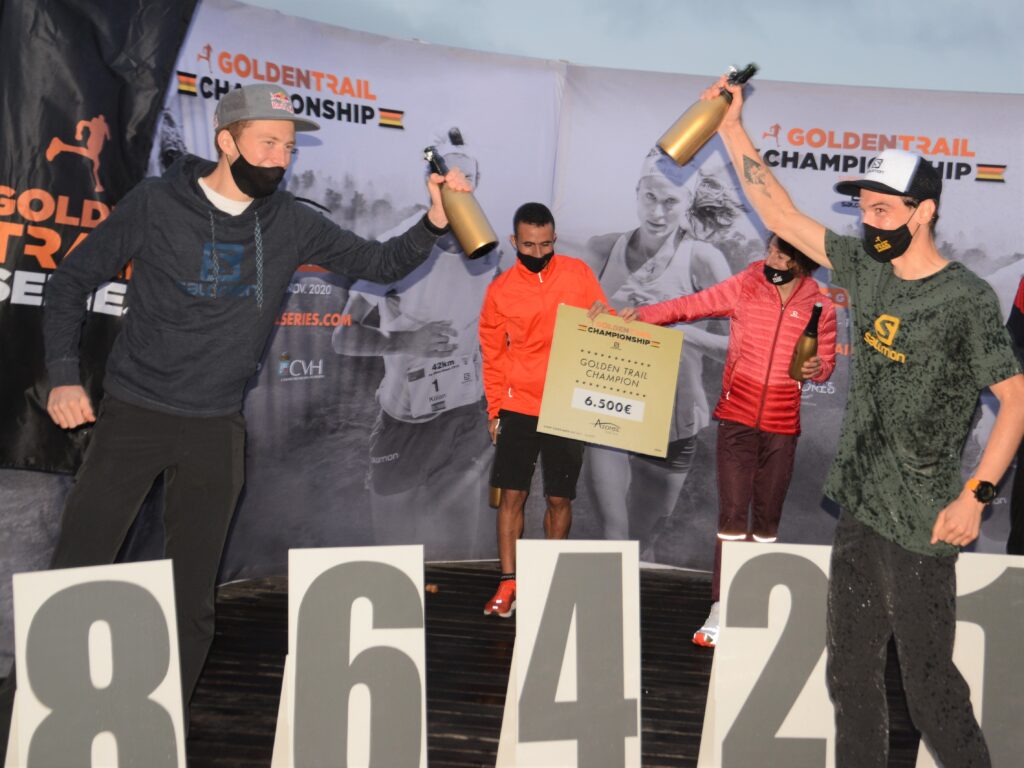
The ‘morning after’ revealed the summit of the 1043 m Faial Caldeira, created thousands of years ago by volcanic activity, in all its glory. Four times, some of the world’s best marathon-distance athletes visited this “throne of the gods”, but four times they were denied access by the weather, losing the chance to view the breathtaking Faial Caldeira, the volcanic crater which has rightly earned a place on global tourists’ bucket-lists. instead they were gifted 60 to 80 kph winds, pea-soup cloud and rain as they ran the gauntlet of a single muddy track around the crater’s perimeter.
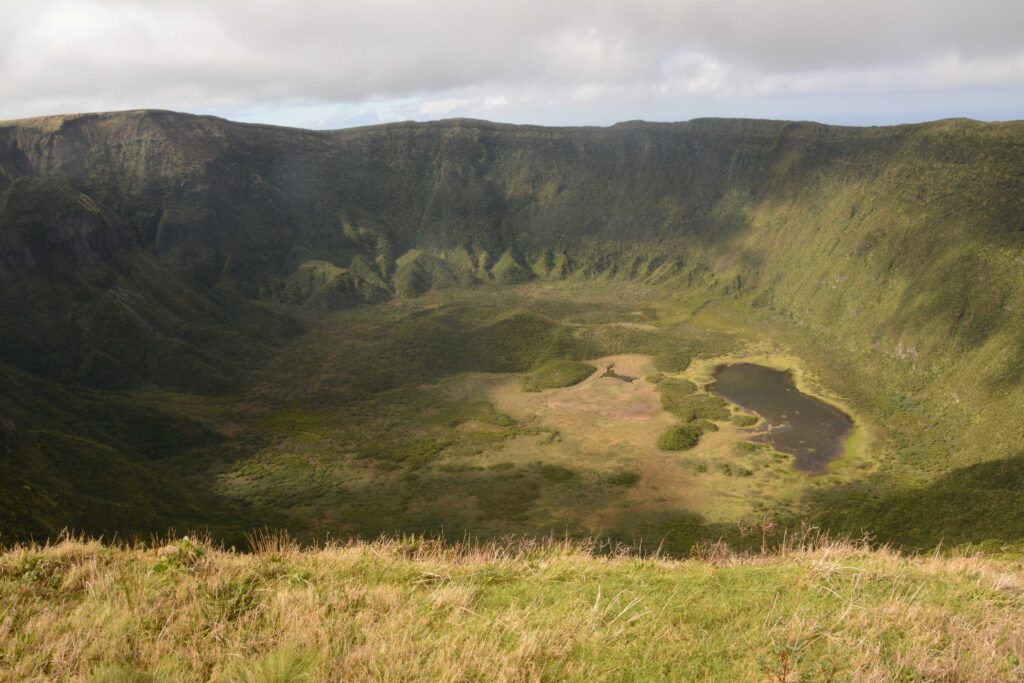
The GTC incorporated the Azores Trail Run and local race director, Mario Leal, displayed the dexterity of a circus acrobat to deliver alternative routes for the final two days at short notice, after conditions were deemed too dangerous for racing. But these elite ‘trailers’ are tough and most survived the perils of weather and treacherous trails to finish the four-day event with bodies aching but spirits buoyed.
Several did not, however. British athlete and winner of the 2018 Golden Series grand final, Holly Jones, and Swiss Stephan Wenk both required stitches to their knees after the second stage, courtesy of collisions with a tree and a rock respectively. Top American Max King suffered a torn calf and limped out the race before half-way. Leading Norwegian Eli-Anne Dvergsdal also could not continue beyond half-way, while Irish star Sarah McCormack and Canadian Lindsay Webster, also athletes with top ten aspirations, limped through the final stages with injuries to hamstring and foot respectively.
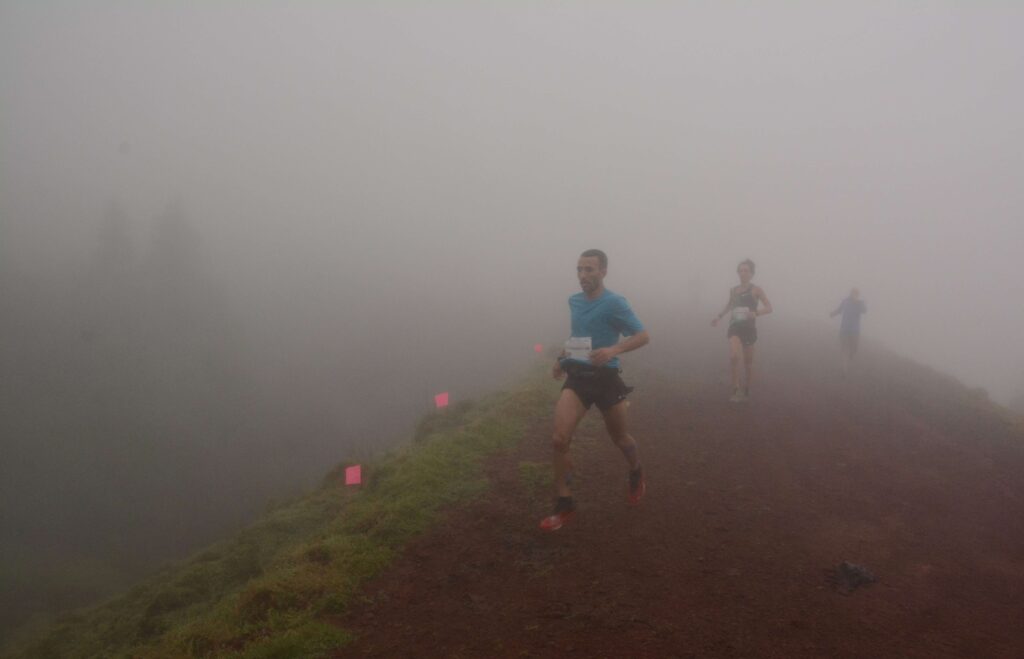
Several others, such as Swede Tove Alexandersson, who suffered a bad ankle twist during her Day One victory, and fellow-orienteering champion and first day winner, Frederic Tranchand of France, continued to the finish with protesting body-parts to claim high-ranking overall positions and the honour of completing the initial Golden Trail Championship. Others triumphed with impressive displays of trail racing over a variety of terrain and conditions.
None impressed more than super-Pole Bartlomiej Przedwojewski and swift Swiss Maude Mathys, who took overall honours by comfortable margins, even though each surrendered the final day’s stage to two American athletes who impressed throughout the championship – Jim Walmsley and Rachel Drake.
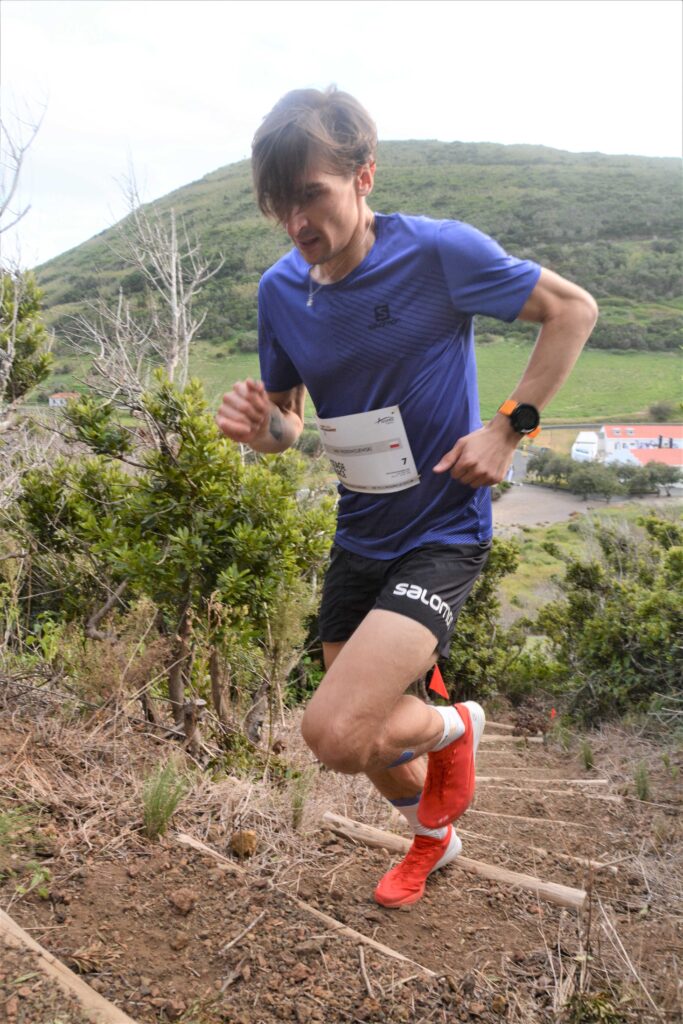
Walmsley came to the championship with a huge reputation but found himself racing outside his comfort zone, down muddy and slippery descents. But he prepared diligently, running most of the course prior to the race and proved a fast learner, improving each day to finally triumph on Day Four in a pillar to post victory over his nemesis Przedwojewski.
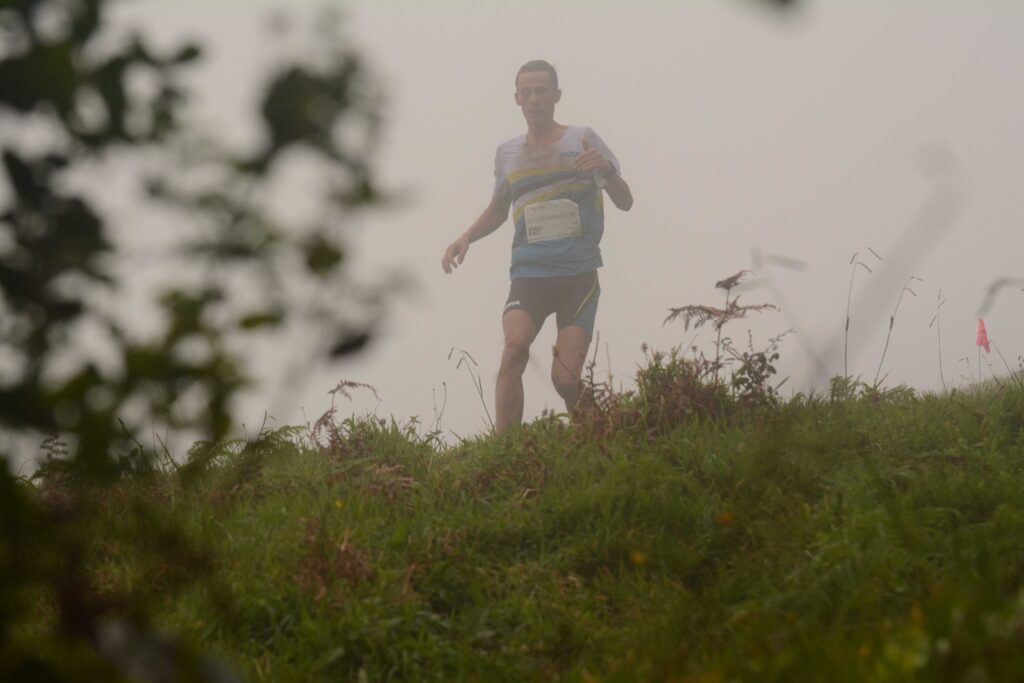
Oregon-based Drake proved a revelation. Wins in races in the USA, including the 2018 National Trail Marathon Championship and the Pacific North West Golden Segment this year, and a strong showing in Europe, including 7th in the Ultra-trail Mont Blanc “CCC” suggested she might challenge for the podium and she showed courage, determination and talent to take on and ultimately defeat Mathys in the final day’s running to place second overall.
But back to the champions. Like Walmsley ‘Bart’, as the Polish athlete is known to all in the running business, did his homework. “I prepared myself specifically for this championship,” he said at the final awards session. “I studied all race routes in detail and the different types of terrain that we were going to encounter, I was very sure of my strengths. I wanted to create and keep a gap between myself and the other runners.”
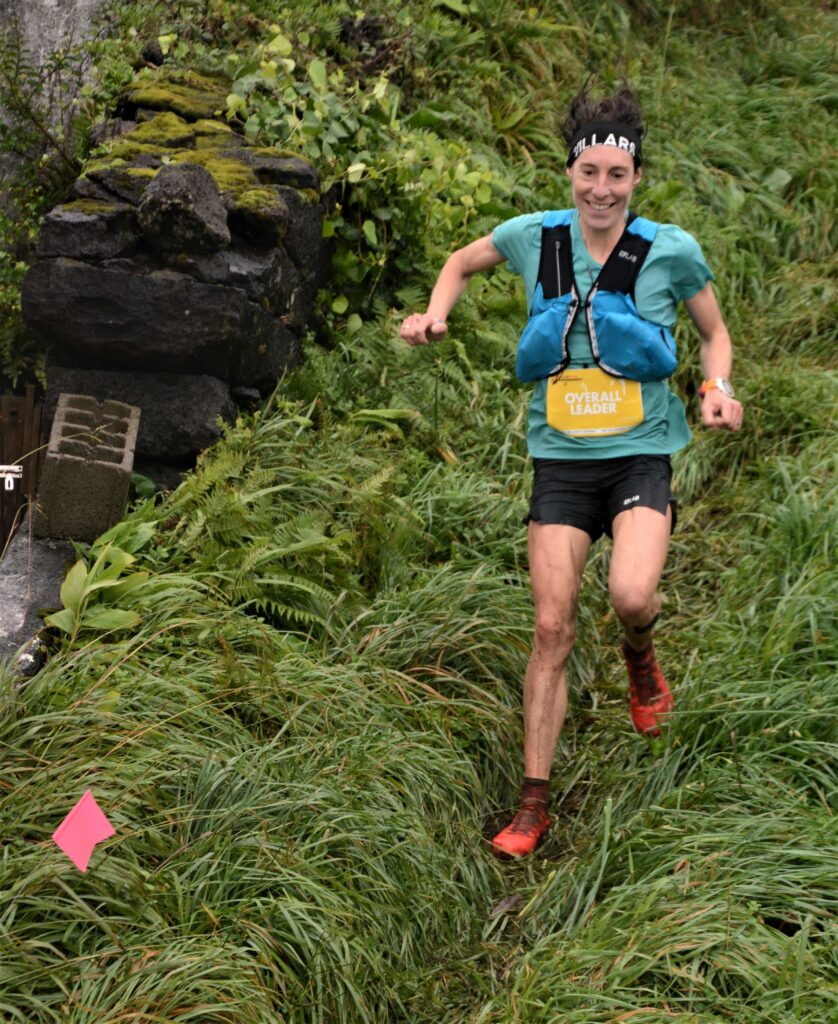
The popular Pole rated his GTC success on a par with this win in the Grand Finale of the 2018 Golden Trail Series at the Otter Trail in South Africa – which remains his favourite race destination. Mathys, on the other hand, arrived on the island less well prepared. “Due to the health situation I wasn’t sure the race would go ahead. Then just three weeks before I thought, it looks like it’s going ahead, so I had better train! It was an interesting format that I’d never done before…There was a full range of technical terrain, which was great, even if I’m not a big fan of mud, especially 4 days non-stop. It’s not my strong point! I’m really honoured to have been a part of this event and happy with my result.”
The creation of sub-categories in the race, designated by coloured race bibs, proved popular and spread the €100,000 prize money to as many as thirty athletes. While the ‘climber’ category was more closely associated with the overall leaders – Swiss specialist climber Remi Bonnet also bagged a top ten finish while Mathys came out on top in the women’s section – the ‘downhiller’ and ‘sprint’ categories were won by overall no-hopers and supreme specialists.
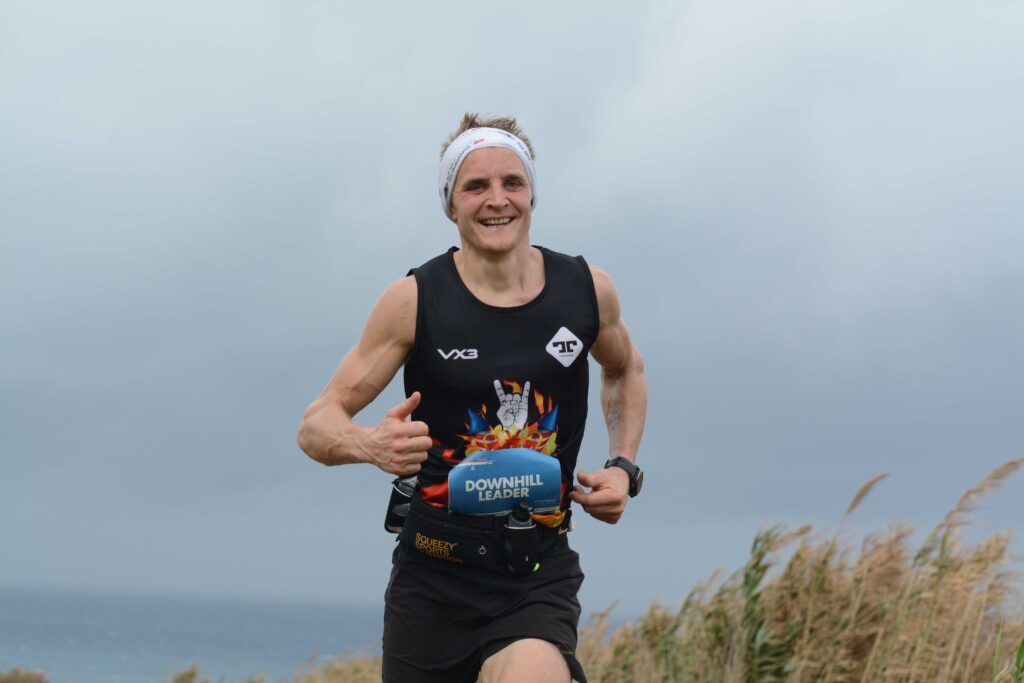
Norwegian Anders Kjærevik confessed before the race that he was way off the pace of the leading athletes, but that he felt he had an ability to run downhill at speed and might go for that category. He succeeded beyond his dreams, winning three of the four downhill segments and the overall prize. “You just need to be stupid! You switch off your brain and run!” Ana Cufer went one better, taking all four downhill segments. The tough, tattooed Slovenian recently added mountain biking to her sports of choice and admitted that downhill MTB helped her for the Azorean challenge. “You have to focus and look far ahead for your trajectory, so yes it probably helped.” Spanish athlete, Gisela Carrion, was furious at missing her way on the second stage and took out her anger on the sprint section. “When I realised I could actually win the green bib, I decided to put my focus on that as my goal.”
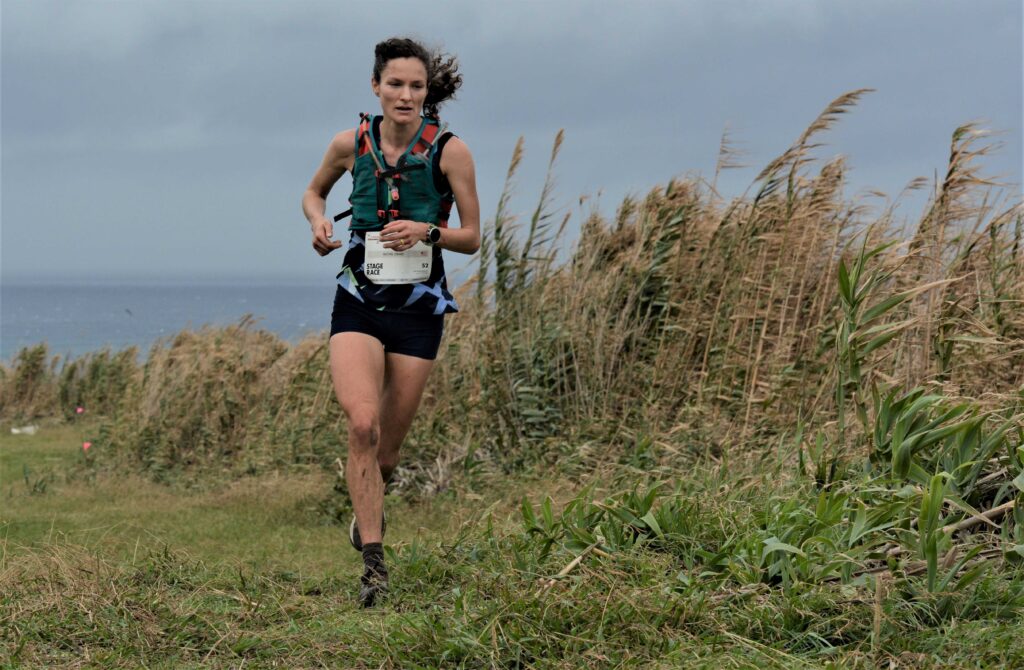
But the tussle of the week proved to be between Frenchman Théo Détienne and the Spanish steeplechase athlete, Andreu Blanes, in the men’s sprint category, with the former edging out his rival by just six seconds, in spite of winning just one of the stage sections. While the stage-race and sub-category format arose out of the COVID context, Golden Trail founder, Greg Vollet, believes that they will form part of his plans into the future. “They proved popular and offered a variety for specialists, so perhaps we would hold a similar event every second year.”
